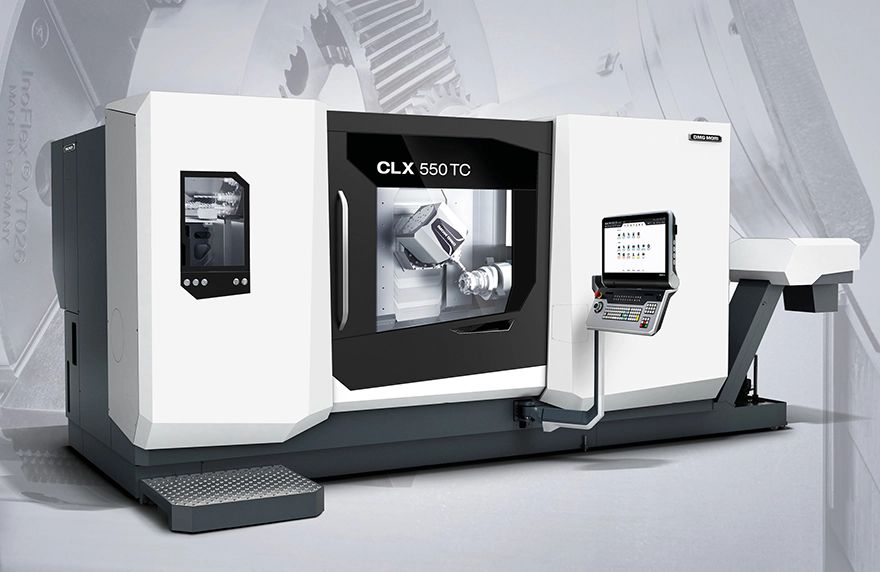
The increasing diversity of components and decreasing batch sizes tend to extend periods of unproductive setup. The CLX TC turning centre series from
DMG Mori addresses this by replacing the tool turret in the company’s CLX lathes with a ±120deg swivelling B-axis tool spindle having 0.001deg resolution positioning. At the recent
AMB 2024 exhibition in Stuttgart, the new CLX 550 TC model was launched, which joins the smaller capacity CLX 450 TC introduced last year.
The compactMASTER 12,000rev/min turn-mill spindle with 90Nm of torque is served by a tool magazine offering space for up to 60 cutters for rotational and prismatic machining (30 tools is standard). They can be loaded and unloaded in parallel with production to minimise machine downtime.
The main and counter work spindles motors are both rated at 4,000rev/min/720Nm, maintaining flexibility when programming the machine to produce complex components on six sides in one hit. Chucks up to 400mm in diameter can be used, while bar capacity is 102mm.
Maximum workpiece size that may be accommodated is 550mm dia x 1,600mm in length. The use of steady rests, which are available up to a workpiece diameter of 360mm, are recommended for machining long components. A Y-axis with 270mm of travel allows eccentric machining.
DMG Mori’s CELOS X user interface in conjunction with the
Siemens Sinumerik One control and the ERGOline operating panel enable the use of multiple software offerings. They include OP Workbench to enhance the efficiency and productivity of machine operators, as well as dozens of app-based technology cycles.
In addition, 3-D Shopfloor Programming, a joint development by DMG Mori and Siemens, uses the
3-D model of a component from the design department to create an NC program mostly automatically based on the underlying data. Automated feature recognition speeds programming by up to 80%, freeing up time for other production-related activities.
The machine’s modern components are energy- and resource-saving, ensuring ecological operation. Demand-oriented coolant delivery, regenerative braking and drives that are up to 93% efficient are just three measures that contribute to economical energy usage. Automation options such as Robo2Go enable users maximise machine utilisation by running it unattended overnight and at weekends.